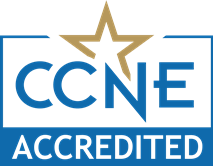
Family Nurse Practitioner (FNP), Primary Care Postgraduate Certificate
Complete this form to receive the Purdue Global program guide.
Family Nurse Practitioner, Primary Care Certificate Overview
It’s time to take the next step in your nursing career. Earn your FNP certificate and advance as a primary care provider serving adults and children in a family setting.
- Learn how to diagnose and manage patients' acute and chronic health problems as well as ways to serve as a patient advocate.
- Take courses online and start your certificate whenever it's convenient for you.
- Gain hands-on experience through local onsite clinicals that allow you to apply what you’ve learned in a real-world setting.
- Prepare to obtain valuable family nurse practitioner certifications.
- Learn from faculty with decades of nursing experience.
- Be ready to make an impact by improving the availability of holistic, evidence-based, culturally relevant health care in diverse communities.
Contact an Admissions Advisor for more information about the number of hours needed to complete the clinical requirement.
Note: At this time, residents of the following states and territories may not enroll in this program: Hawaii, Louisiana, New York, Oregon, Tennessee, Utah, and Guam. In addition, international students are not eligible to enroll in this program.
See Notes and Conditions below for important information.

CCNE Accredited
The postgraduate APRN certificate programs at Purdue Global is accredited by the Commission on Collegiate Nursing Education (www.CCNEAccreditation.org).
Purdue Global Is Accredited by the Higher Learning Commission
The HLC (HLCommission.org) is an institutional accreditation agency recognized by the U.S. Department of Education.
Calculate Your Time and Cost
Estimate how much your prior learning credits can reduce your tuition and time to graduation.
What Courses Will I Take?
The family nurse practitioner certificate program is focused on helping you develop the skills to evaluate the health and wellness of individuals, families, and their communities.
Sample Courses
- Advanced Physiology and Pathophysiology
- Advanced Health Assessment and Diagnostic Reasoning
- Primary Care Across the Life Span
- Primary Care of Women's Health
- Primary Care of Children and Adolescents Health
Program Requirements
1 semester credit hour = 1.5 quarter credit hours
Admissions Requirements
A master's degree with an upper-level major in nursing or a Doctor of Nursing Practice degree and an approved criminal background check is required. You will need to provide an official transcript that shows your degree completion with a cumulative GPA of 2.5 or higher from an accredited institution, though an unofficial copy may be provided during the application process. Additional requirements apply. Refer to the program-specific policy page in the University Catalog or speak to an Advisor to learn more.
Upcoming Start Dates
We offer multiple start dates to give you flexibility in your education, life, and work schedules.
Pursue Certification
Prepare to sit for family nurse practitioner certification exams offered by:
- American Nurses Credentialing Center (ANCC)
- American Academy of Nurse Practitioners (AANP)
After earning your FNP certification, you may be academically eligible for licensure as an APRN in any state where the program is available for enrollment.
Faculty With Real-World Experience
Our faculty has decades of nursing experience and brings real-world knowledge to the classroom. Many hold doctorates or advanced nursing certifications; all faculty members possess at least a master’s degree.
See Notes and Conditions below for important information.
Ways to Save on Time and Tuition
Purdue Global works with students to find ways to reduce costs and make education more accessible. Contact us to learn about opportunities to save on your educational costs.
Transfer Credits
Earn credit for prior coursework completed at eligible institutions.
Financial Aid
Learn about federal financial aid programs available for many of our degree programs.
Grants and Loans
Learn about federal and state grants and loan programs that may be available.
Corporate Partner Benefits
Employees of Purdue Global partner organizations may be eligible for special tuition reductions.
Military Tuition Reduction
Graduate tuition savings for military include a 17–30% reduction per credit for current servicemembers and 14% per credit for veterans for graduate programs.
Prior Military Experience
Earn credit for your military training. We offer credit for ACE-evaluated training and CLEP and DANTES examinations.
View the total cost of attendance for your program.
Possible Behavioral Interview Questions for This Field of Study
- Share an example of a time when you had to shift priorities quickly. How did you handle that situation?
- Describe a time you motivated your team to achieve results. What was your approach?
- Tell me about a situation where you had to manage competing priorities during your program such as clinicals, coursework, and personal responsibilities. How did you stay organized and meet your goals?
Sample Skills Developed and Used in This Field
- Accountability
- Care Coordination
- Communication
- Critical Thinking
- Decision Making
- Ethical Standards and Conduct
- Electronic Medical Record Management
- Leadership
- Ethical Standards and Conduct
- Nursing Care
- Nursing Practices
- Primary Care
- Problem Solving
- Treatment Planning
Take a Career Assessment
Discover your work interests, and use them to chart your ideal career path.
Download the School Brochure
Download our brochure to learn more about our nursing programs and the benefits of earning your degree at Purdue Global.
Get to Know Our Faculty
Purdue Global faculty members are real-world practitioners who bring knowledge gained through the powerful combination of higher learning and industry experience.
Faculty members who have advanced degrees
Faculty members who have terminal degrees
Faculty publications in 2024–2025
Professional development hours logged by faculty in 2024–2025
Statistics include all Purdue Global faculty members and are not school- or program-specific calculations. Source: Purdue Global Office of Reporting and Analysis, August 2025. 2024–2025 academic year.